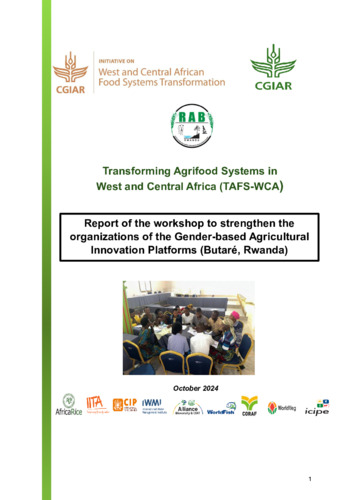Report of the workshop to strengthen the organizations of the Gender-based Agricultural Innovation Platforms (Butaré, Rwanda)
Abstract
An entrepreneurship training workshop for actors in agricultural value chains, including youth and women in Gisagara, was held on August 20 and 22, 2024, at. It brought together 40 participants including 27 women and 24 young people and women from different parts of the food value chain. The objective of the workshop was to support young people and women in their entrepreneurial approach in the agribusiness sector, by operationalizing the concepts and providing the necessary methods, tips and skills requirements. On August 19, 2024, a workshop was held at the Galileo Hotel in Butaré in southern Rwanda, bringing together participants from agricultural sectors including rice. The objective of the workshop was to strengthen the actors of organizations of gender-based agricultural innovation platforms. During the workshop the participants carried out a SWOT analysis (Strengths, Weaknesses, Opportunities and Threats) to highlight the main elements that influence the value chain and identify the key areas for improvement and growth of each sector. For all actors, the factors that influence positively are national political-institutional mechanisms, the availability of land and producers, and the presence of a local market. Factors negatively affecting the food value chain are: high seed prices, lack of training in good agricultural practices, poor access to production sites, climate change effects, flooding of the local market with products from neighboring countries and insufficient local processing units. There are opportunities to expand the local market according to the workshop participants Participants were also able to identify constraints related to agricultural entrepreneurship. For young people, lack of land, lack of parental confidence and funding structures towards young people, young people's lack of interest in agricultural trades are the main obstacles to their involvement in the agricultural sector. For women, barriers are: lack of support from spouses, the grabbing of productive resources by men, low self-esteem, illiteracy, lack of entrepreneurship training, lack of access to credit and land. Participants gained a better understanding of the challenges and opportunities in their respective sectors. In the end, they called for much more support and strengthening in areas such as corporate governance and agricultural entrepreneurship.

